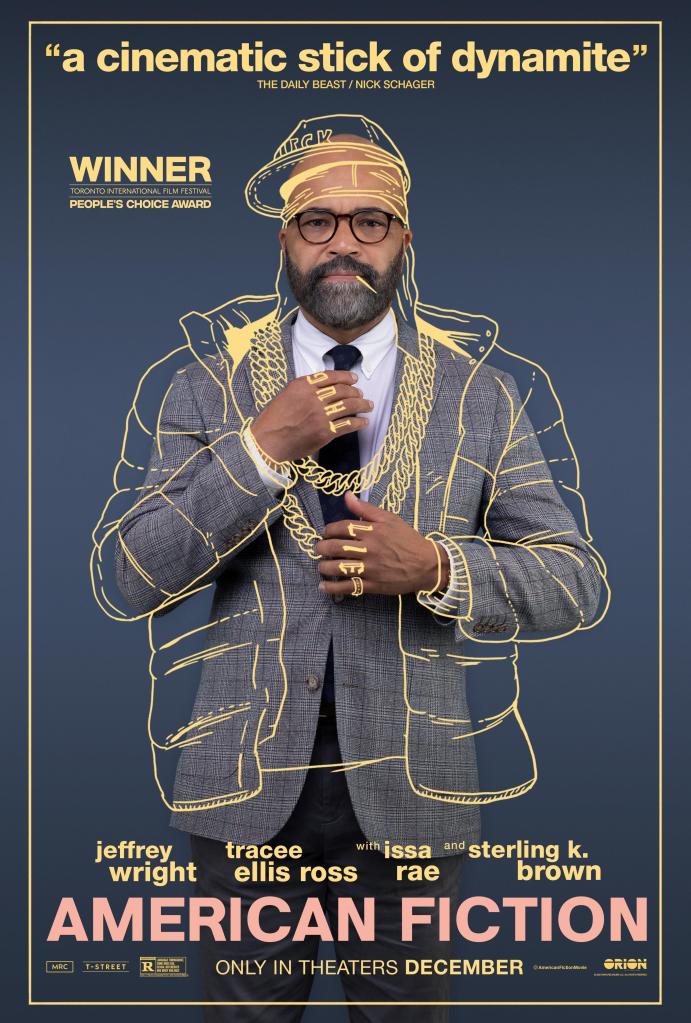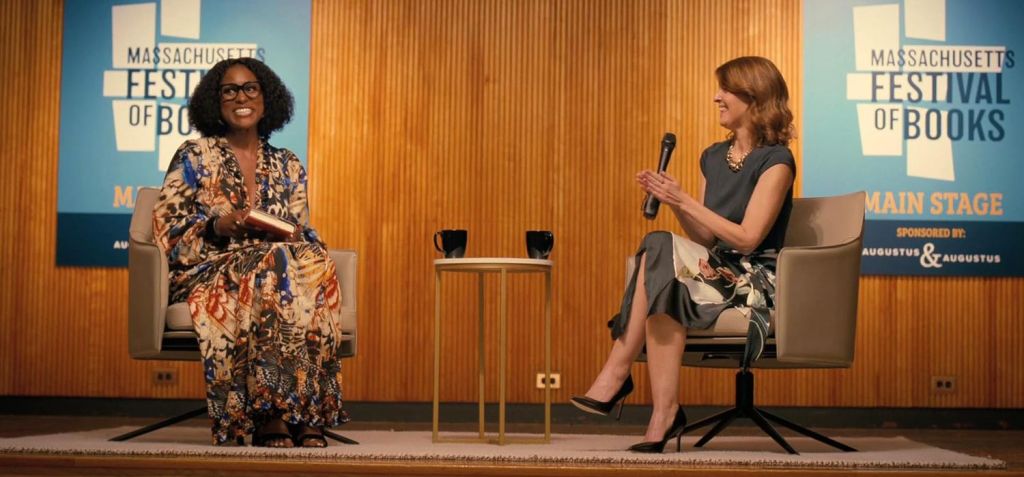
One of the earliest and most trite observations of my 20s was that authenticity is an overrated virtue. As I’ve gotten older, my opinion has softened a bit – authenticity is indeed a virtue; it’s simply impossible to assess either internally or externally, which renders it meaningless as an article of praise. At worst, authentic is used to describe an unfamiliar cuisine by people who have never eaten it before, often in the same breath in which they describe it as bold, experimental fusion. It gets worse when describing stories – at best, a story might be deemed “authentic” by a non-critic who shares some verifiable life detail with a work’s subject, e.g. a soldier rating another soldier’s memoir as such, often before asserting that no one can truly understand war unless they’ve lived it. Even the people who lived a particular life or in a particular neighborhood or with a particular worldview will be the first to tell you – their people contain multitudes, and nobody’s the same as anyone else. So what is authenticity, really? A stamp of approval of the truthiness of a thing? Confirmation bias as analysis?
I began this review with a discussion of authenticity because it is skewered so thoroughly in first-time film director Cord Jefferson‘s American Fiction (Master of None, Succession, Watchmen), an adaptation of Percival Everett‘s 2001 novel Erasure. If you really want to damage your critical psyche a bit, spend about 15 years reviewing films and then go back and re-read every time you’ve used the word “authentic” in a review. Cringe appropriately. As a current practice, I prefer to judge a work by its perceived sincerity, and American Fiction is sincere, hilarious, and a great deal more than the sum of its elevator pitch: that frustrated fiction writer and professor Thelonious “Monk” Ellison (Jeffrey Wright) would adopt an authorial minstrel persona in the form of fictitious fugitive “Stagg R. Leigh” in order to write a pandering pastiche of Black trauma porn, only to see it embraced by the literary establishment and the white world writ large. And the film’s greatest trick is to treat this pitch – almost certainly the reason why it has attracted such buzz in the wake of its audience award at the Toronto International Film Festival – as an afterthought to the establishment of Ellison himself – and his family, history, and relationships – as the furiously beating heart of this film.
When Monk ends up on a forced hiatus from his academic position after excoriating a white student for complaining a bit too much about the presence of the N-word in a class on literature of the American South, he returns home to his ailing mother Agnes (Leslie Uggams), and is joined in turns by his adult siblings, Lisa (Tracee Ellis Ross) and Cliff (Sterling K. Brown) – both doctors, and both recently divorced. This family is solidly middle-class bordering on upper, and – like many American families, just one medical crisis away from financial ruin. And so the family comes together, their history spelled out so plainly from the first interaction that I wanted to stew in it, because these people are as wryly hilarious as they are deeply damaged. Ross is a particular delight, having to establish a sibling dynamic with Wright in just a few utterly charming scenes in which these two make it clear that despite being out of touch and having serious shit to deal with in their lives, they still love and like each other, and are genuinely thrilled to be back in each other’s orbits. Brown, meanwhile, plays Cliff as the black sheep of the family, off his head on cocaine in half his scenes, and exploring his newfound identity as a divorced, gay, Black man, having only lived a third of that out loud so far, and experiencing pain and pleasure in equal parts at the freedom and pathos of finally letting his family know the entirety of himself. Cliff is very much not the focus of this story, and yet it is a testament to Brown’s performance that this character feels so fully realized. His life is a mess, but it goes on when the camera stops rolling. So it is as well with Lorraine (Myra Lucretia Taylor), the family’s longtime housekeeper and caregiver, who is rightly and mutually seen as part of the family, even as she finds herself the only maternal figure remaining as Agnes’ health begins to fade. And again with Coraline (Erika Alexander), an attorney and public defender who lives across the street from the family’s beach house, mid-divorce herself, and as eager to strike up a hasty, casual fling with Monk as he is to find a distraction from his deep well of career disappointment and self-loathing. These people exist outside of Monk and he outside of them, and yet they sketch out a life that is fully realized both onscreen and implicitly before the film began. I can’t speak to their authenticity, but they sure felt real as I watched them. And I spent so much time laughing aloud at their biting humor – as well as uncomfortable moments where the laughter was just a discomfited placeholder for incoming pathos – that I hardly had time to ponder what purpose they served as archetypes. I just wanted to live with these people for a bit, and hear what they had to say.

Where Wright really shines is in his character’s capacity for both self-awareness and self-deception. From his first scene, he is utterly in command of both screen and classroom, and yet, he has so much anger stewing beneath the surface that he feels fit to burst (and ultimately does burst, kicking off the film’s plot). And yet, Monk has had a fortunate career and he knows it. He writes books that are sold in chain bookstores – albeit not with the kind of regard he wants. “The only thing black about this book is the typeface,” he says to a store clerk as he moves his book out of the “African-American fiction” section, even as the clerk assures him that he has no choice about the placement and that he’s just gonna move em back as soon as Monk leaves. Monk has written works that he is personally proud of, but he can’t continue to sell them to an increasingly monolithic and tunnel-visioned publishing world that only wants one specific narrative from Black writers: the Real Black Experience. By which they mean…a ghetto. Poverty. Drug abuse. Crime. Murder by the police. And slavery, if it’s a period piece. This version of Black fiction is represented in the film by a novel called We’s Lives in Da Ghetto by Sintara Golden (Issa Rae), who also fits the bill of characters who appear in Monk’s orbit fully-realized and yet feel as if they have a life outside of it. Sintara went to Oberlin and grew up well off, and touts the authenticity of the AAVE and patter in her book by saying she based her book on “real interviews”. This is the Michael Lewis of poverty tourism fiction authors – she hasn’t lived it and doesn’t really understand it, but…she sure can sell it. And she’ll defend herself persuasively to your face if you dare to try and make her feel bad about giving the market what it wants.
It is to the film’s credit that it really doesn’t take a position on whether Sintara’s mercenary attitude is any less dysfunctional and twisted than Monk’s self-important sense of discontent. Monk doesn’t hide his contempt for the publishing world nearly as well as Sintara does – at one point demanding on a conference call to the marketing department that Stagg R. Leigh’s new book should be retitled from My Pafology to simply…Fuck. Which, of course, they agree to do, and it only makes the book more buzzworthy. It hardly matters whether an artless exercise in self-parody actually gets read by anyone, as long as it makes for an interesting cover and conversation piece. Monk’s literary agent Arthur (John Ortiz) concludes a reading of a racist review of his last book, in which the critic essentially tells Monk to stay in his lane (wondering what the book’s subject matter “has to do with his experience as a Black man”) by commenting that white people think they want the truth, but what they really want is absolution. This sort of cynicism is well-earned by the film’s plot, even if it taps out a bit at the end into a Kaufmanesque discussion of how the story should end for the audience they’re trying to sell it to. Monk playing ball with this discussion almost feels like he’s come around a bit to Sintara’s way of thinking, but it’s hard to forget how much he talked down to her about it without even deigning to read her book for himself. They’re both pretty awful in this moment, and yet, not nearly as awful as the white people praising Fuck for its authenticity. As a critic, American Fiction was a reminder to stay humble. And as a reader of fiction, American Fiction was a reminder that nobody knows anyone else’s life. And sometimes, the richness and texture of that life can be pleasant to immerse yourself in whether or not you can turn it into a grand observation about your own.
FilmWonk rating: 9 out of 10
Pingback: 2023 Glennies (Top 10 Films of 2023) | FilmWonk